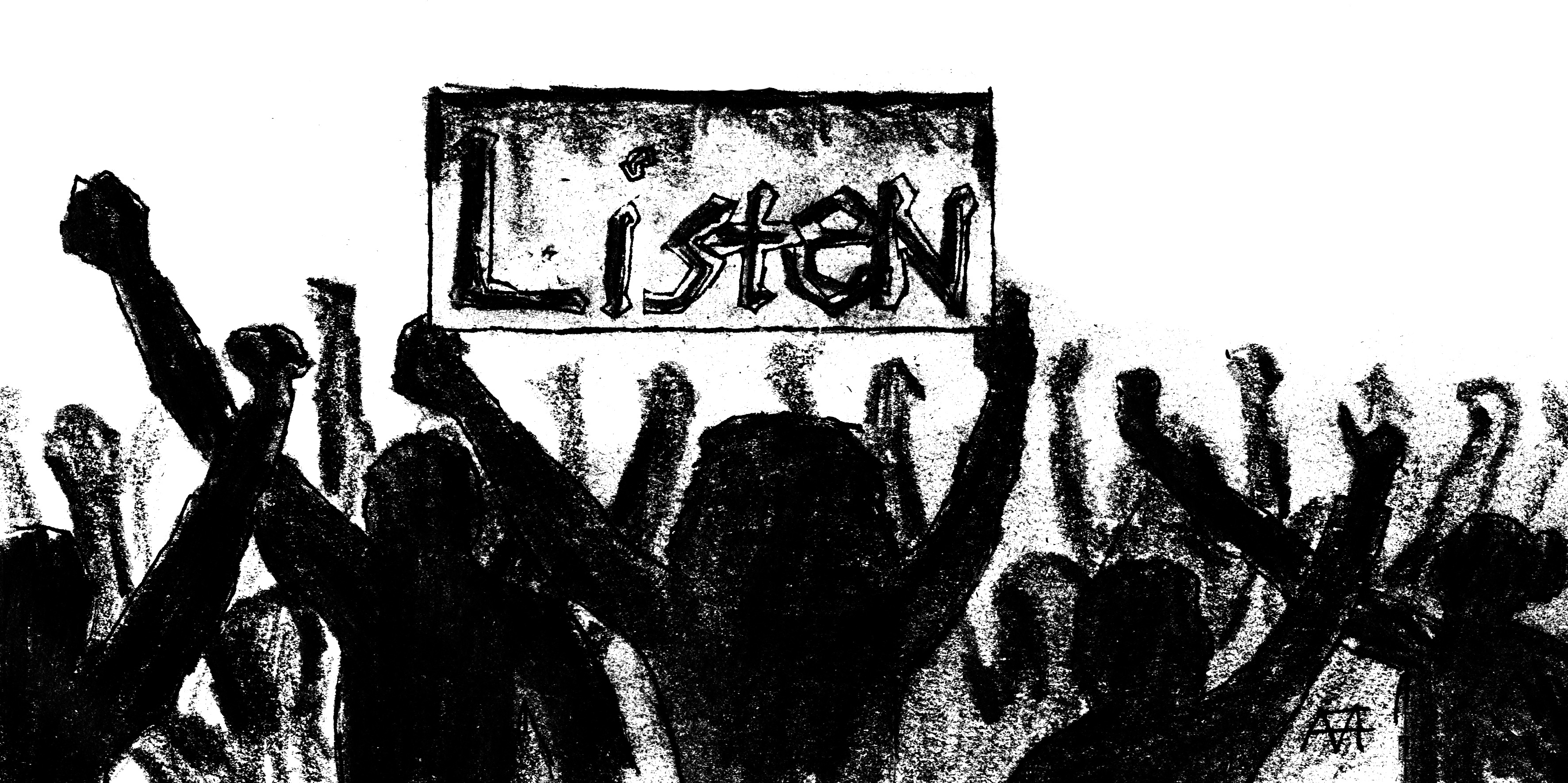
Every day I open my mouth to speak. I raise my hand, the professor calls on me, I reply. I respond when my friends ask me questions. When we speak it should be a symbiotic back and forth, a dialectic.
However, this dialectic doesn’t come so easily to me; I know that before I even open my mouth, my words will be tainted, marred by my thick lips and dark skin. I make my voice louder to compete — I scream. I scream about white supremacy, capitalism, ableism and sexuality so that my peers can understand my plight. Every time I scream on this campus people sit there and pretend to sympathize. They tell me they care about ideas and discourse, but after a while they look away. In an email Erika Christakis tells students to look away when they see something offensive, but I can’t. I can’t look away from the racist and sexist tropes that are omnipresent in the media; I can’t avert my eyes when someone calls me a n—.
At Yale it’s always about discourse, but for whom? How are we supposed to talk if no one will listen? In light of debates over the use of the title master, Calhoun College, SAE and Christakis’ email, it’s clear that some voices are louder than others.
In our generation, it seems as if there has been a shift from activism to discourse. President Salovey, for example, encouraged a “community-wide dialogue” about Calhoun in an email sent out to undergraduates. Robert Rosenthal and Louise Brown, professors at Wesleyan, write that much of activism now is focused on discourse and lobbying as opposed to direct protest and confrontation. Even with all of this discussion, Yale still manages to have egregiously high rates of sexual assault (which disproportionately affects women of color), a lack of minority professors and a student income contribution that severely disadvantages low-income students.
We need action.
Lately it seems as if our campus has been moving towards a culture of activism. Recent movements such as Next Yale, Fossil Free Yale and Students Unite Now have made an effort to organize. Last Monday the March of Resilience showed that over 1,000 of us were able to gather in solidarity and organize quickly (although it wasn’t a protest). Additionally, about 160 protests took place across the country over the course of 2014. As Yale students, we have the power to take up the torch of student activism.
Although “rational discourse” is beneficial, it can often prove inadequate: Liberation strategies should be a combination of discourse and activism. Movements combating forms of oppression gain traction through both. Writers like Ta-Nehisi Coates, W.E.B. DuBois and Gloria Steinem have been essential for cultivating critical consciousness through writing, but this is only one side of the coin.
In the ’60s and ’70s demonstrations against the Vietnam War and racism in the American South proved necessary for real change. Without sit-ins, peaceful protests and grassroots organizing, it’s hard to see how the 26th Amendment or the Civil Rights Act of 1964 could have passed. Yale has brought activists to campus in the past. In the ’80s, LGBTQ students held protests in response to discrimination. DeRay McKesson, a leader in the Black Lives Matter movement, also visited Yale. However, the activism on campus today does not approach the level we saw in the 1960s and early ’70s. But in the later 1970s, economic downturns discouraged student activism and caused more students to focus on “safer” preprofessional majors.
This decline in activism, however, doesn’t mean that all of our problems have been solved. Now, there is more wealth inequality than ever. In 2012, the share of income held by the top 1 percent of Americans exceeded 20 percent. Moreover, the average net worth of white Americans is about 13 times greater than that of black Americans and 10 times greater than that of Hispanic-Americans. Police brutality against black and brown bodies persists in many parts of the country. The marginalization that women, people of color, LGBTQ and other communities experience on campus is not without context.
Students will do little to help the world if they stop at discourse. “Rational discussion” is of little use to people who have been denied a voice. Real change requires both discourse and action.
Isis Davis-Marks is a freshman in Jonathan Edwards College. Contact her at isis.davis-marks@yale.edu .







